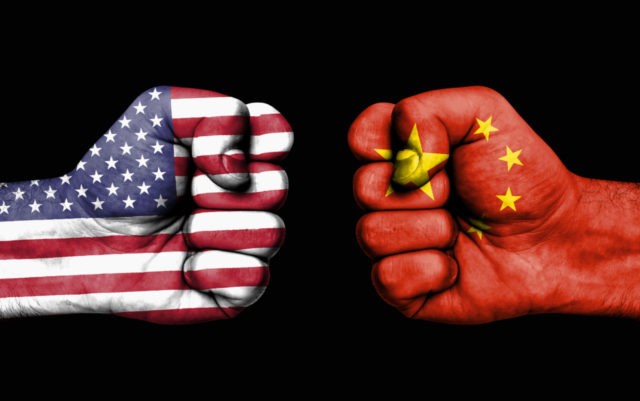A “phase one” trade deal between the U.S. and China may not be completed by the end of the year, according to a report from Reuters.
Talks between the U.S. and China have reportedly stalled as the two sides have pushed conflicting measures. Beijing wants an extensive rollback of existing tariffs as part of any deal, while the Trump administration’s position is that it would only halt further tariffs hikes in a preliminary deal.
The U.S. also wants China to publicly commit to purchase $50 billion of U.S. agricultural products. China does not want to set the level in advance, saying it should be free to adjust the amount of its purchases.
President Donald Trump said in news conference in mid-October that the preliminary deal could take five weeks to put down on paper. The plan was for President Trump and Chinese dictator Xi Jinping to sign the deal at an international conference in Chile scheduled for November. That conference was canceled due to violent protests over domestic issues and no new signing date has been set.
Reuters reports that U.S. Trade Representative Robert Lighthizer believes that rolling back tariffs for a deal that fails to address forced technology transfers and intellectual property will “not be seen as a good deal for the U.S.” The story cited “a person briefed on the matter.”
Breitbart News described a potential rollback of tariffs as a “surrender” to China’s demands.
In our earlier story, we reported:
While many China watchers have expected that a ‘phase one’ deal would likely mean a suspension of plans to raise tariffs in December, China on Thursday said the U.S. had agreed to phase out existing tariffs. Trade hawks in the administration and outside fear that this would be surrendering leverage to China just as the tariffs have begun to seriously crimp the Chinese economy.
Many in China’s leadership believe the country is best served by attempting to wait our the Trump presidency, gambling the economy on a chance that Trump could be impeached and removed from office or lose the election in 2020.

COMMENTS
Please let us know if you're having issues with commenting.